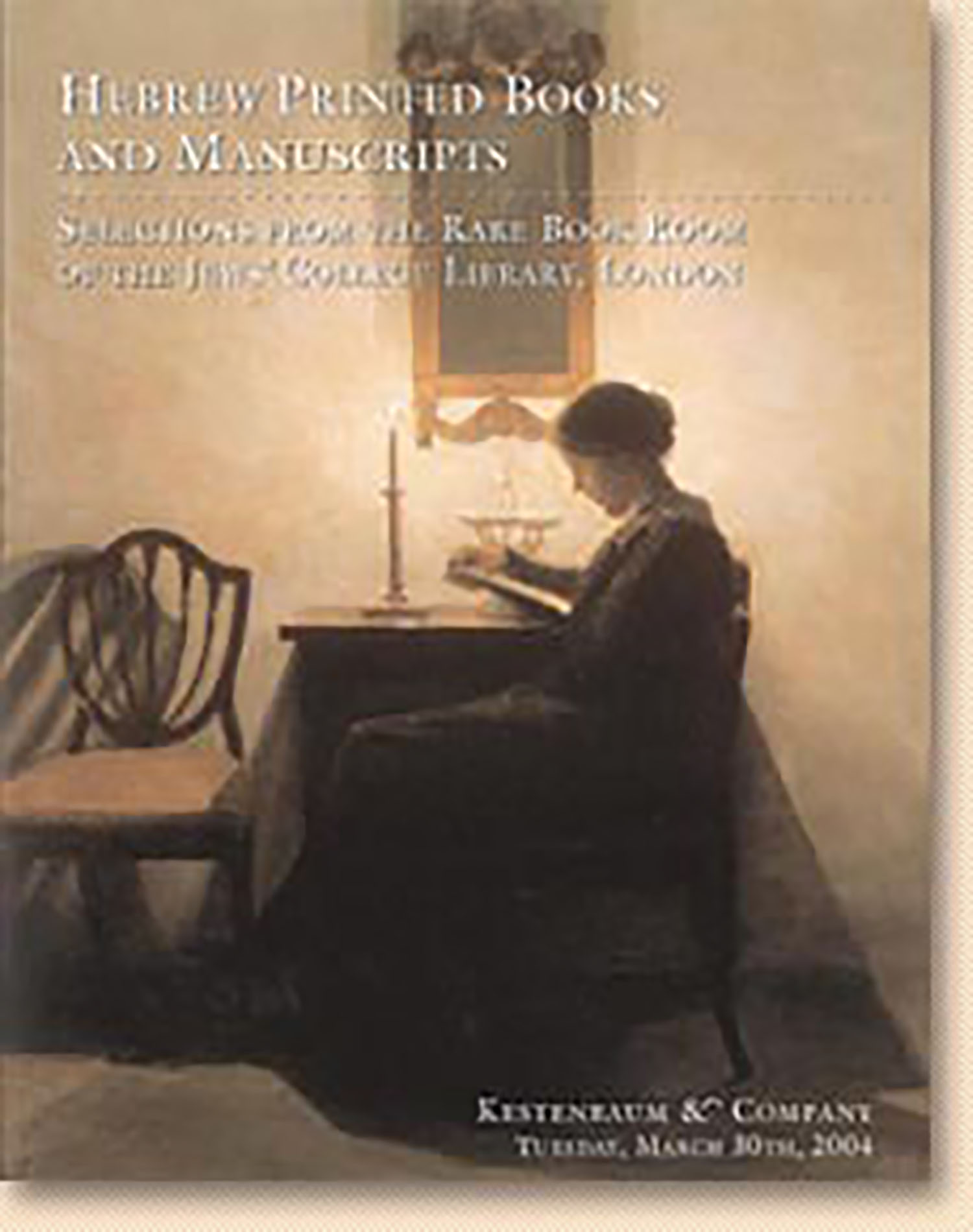Aaron Hakohen of Apt and Zelichov. Or ha-Ganuz le-Tzadikim [sermons on Pentateuch based on Shne’or Zalman of Liadi’s Tanya]

AUCTION 23 |
Tuesday, March 30th,
2004 at 1:00
Hebrew Printed Books & Manuscripts from The Rare Book Room of the Jews College Library, London The Third Portion
Lot 84
(CHASSIDISM).
Aaron Hakohen of Apt and Zelichov. Or ha-Ganuz le-Tzadikim [sermons on Pentateuch based on Shne’or Zalman of Liadi’s Tanya]
Zolkiew: Mordecai Rabenstein 1800
Est: $1,000 - $1,500
Anonymously written, the author’s identity is disclosed by the Koznitzer Maggid in his approbation to R. Aaron’s later commentary to the prayers “Kesser Nehora.” R. Aaron also edited the celebrated Compendium of the Ba’al Shem Tov’s teachings, “Kether Shem Tov.”
The noted Chabad bibliographer Chaim Liberman takes A.M. Haberman to task for not including this work in his Bibliography of Chabad Literature. It appears Haberman was misled by the hypothesis of Gershom Scholem’s disciple, Joseph Weiss, that the book is devoid of Chabad influence, culling instead from teachings of the Magid of Mezerich. (Weiss, in turn, was led astray by the bowdlerised Warsaw 1887 edition.)
In M.M. Laufer,Yemei Melech I(Brooklyn, 1991), p. 199, there is a facsimile of Rabbi M.M. Schneersohn’s library card from the Lubavitch Library for the years 1944-5. One reads there that the Rebbe borrowed the Lemberg 1850 edition of ‘Or ha-Ganuz (the second edition of the work). This would seem to indicate that the library was not in possession of the first edition.
As for the third edition, Warsaw 1887, Chaim Liberman pointed out that there is clearly a maskilic, anti-tzadikistic bias to this printing. Every effort has been made to expunge mention of the Tanya from the book. The innumerable references to “Sepher ha-Tanya” are relegated to a cryptic “S.H.”
